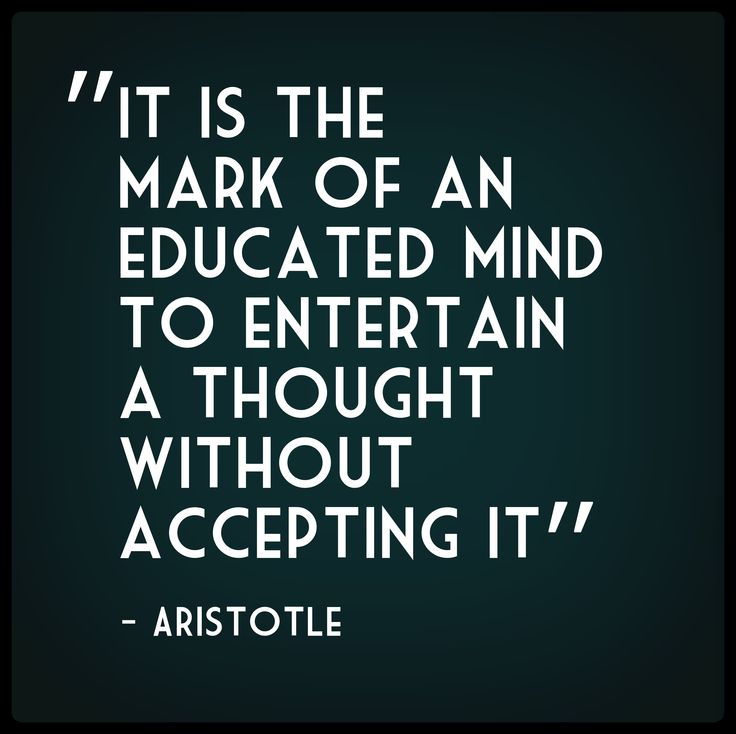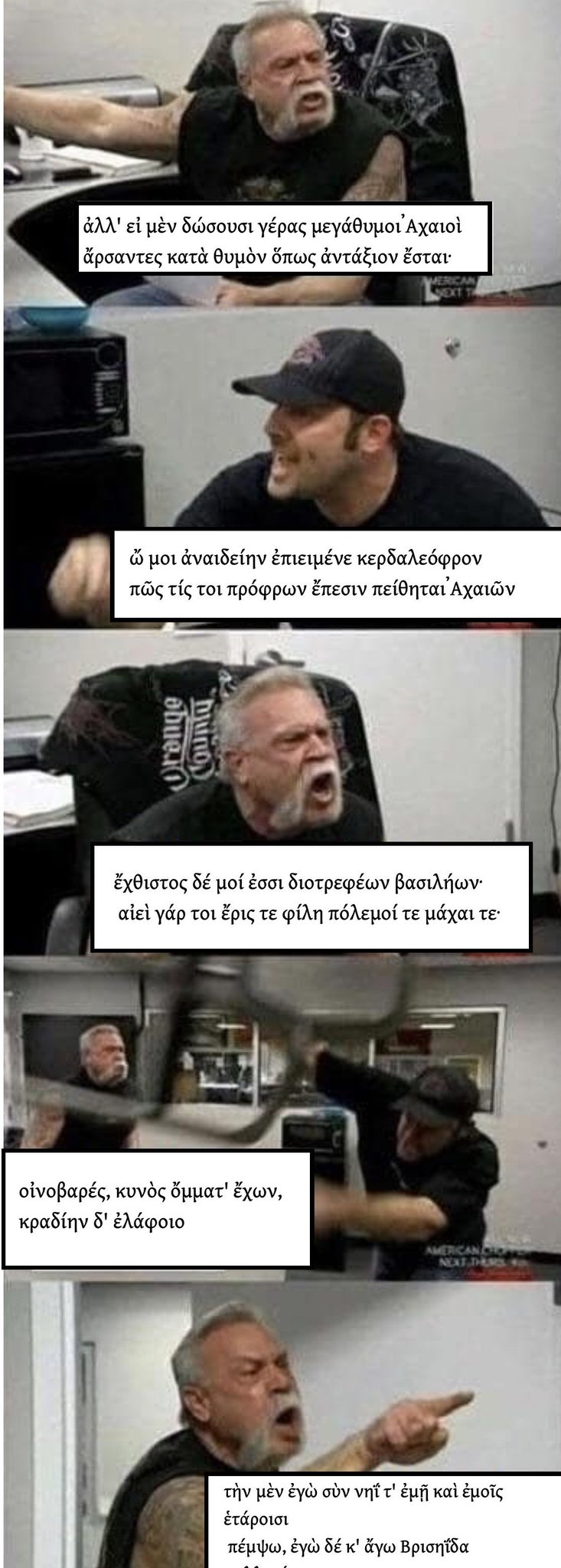A post by the amazing Dr. Hannah Čulík-Baird, known to the twitter-verse as @opietasanimi.
Sententiae has been calling out fake quotations (particularly of Aristotle) for a while now, to the point where a citational typology has been developed. All of these quotations, real or otherwise, really make me wonder: why do we quote so much in the first place?
Ralph Waldo Emerson, who, incidentally, criticized the citational impulse, wrote: “All minds quote.” (Just to be clear, this one’s real: it appears in Quotation and Originality. And yes, I do realize the irony of quoting an authority in an essay which will, spoiler alert, ask that we don’t do this so much. There will be much irony.)

Back to “All minds quote”, then. We’re trained to do it, and there is also something instinctual about it. We want to situate ourselves. We want to be part of an intellectual framework. We want to show we know things!
Citation acknowledges both that we are not alone (others have felt this way, thought this way), and that we didn’t get here alone (others have done work that set the foundation; we stand on their shoulders). Sara Ahmed has written: “Citation is feminist memory. It is how we leave a trail of where we have been and who helped us along the way.” Marika Rose has stressed that citation is a form of “academic currency” which “has value, ascribes value.”
So, I get it. Citationality makes community, and without that community, and citational trust, scholarly work would be impossible. But what about these Aristotle “quotes”? One of the issues here is that some of the Aristotle sayings — the ones which aren’t completely fabricated, anyway — make their way into popular usage because they were excerpted and placed in a different context. “Memory is the scribe of the soul. — Aristotle” – which does, actually, seem to be fake – appears in several 19th century quotation books, either alongside witty phrases on the topic of “memory” attributed to other venerable writers; or as just one in a larger list of sayings attributed to Aristotle. Presenting Aristotle’s words (or not his words) in this way — as short, pithy sayings — removes much of the substance and flattens out the meaning, which will always depend on the context. And by placing pithy phrases in a list like this, the reader no longer views Aristotle as philosopher in the context of his time and intellectual environment, but as Aristotle the timeless authority.
Recently, I’ve been teaching Cicero and my students were considering a passage from De Officiis (1.113) which contains the phrase: id enim maxime quemque decet, quod est cuiusque maxime suum, i.e. something like: “What best suits each man is whatever is most his own.” In class, I remarked flippantly that this is the kind of thing which would appear on a mug in an etsy shop. “What suits us best is what’s most our own. — Cicero.”
Already wildly popular on etsy and elsewhere is Cicero’s “If you have a garden and a library, you have everything you need,” which comes from a short letter to Varro from 46 BCE (Ad Fam. 9.4.1). Although, Cicero says si hortum in biblioteca, “if you have a garden in your library,” which Shackleton Bailey, the famous editor of Cicero’s letters, considered “a rather obscure remark.” The editors before him, Tyrell and Purser, wrote: “Cicero may have been fond of flowers, as some commentators say, but why should the garden be in the library…” They go on to suggest that the text may have been hortum cum biliotheca, “a garden with a library”, which would get us closer to the etsy shop pillows and mugs.
But the earlier part of Cicero’s letter to Varro is banter about philosophical gibberish, which may suggest a more specific meaning here, unknown to us (again: context). Some think that the garden in question is a reference to Epicureanism (Epicurus famously had a garden at Athens).
Anyway, it turns out that the phrase from Cicero’s De Officiis (1.113) was in fact also excerpted as gnomic wisdom in the 19th century. In 1889, it was included in Francis Henry King’s “Classical and Foreign Quotations: Law Terms and Maxims, Proverbs, Mottoes, Phrases, and Expressions in French, German, Greek, Italian, Latin, Spanish, and Portuguese. With Translations, References, Explanatory Notes, and Indexes” (!). It is the 2007th quotation:

The title page of King’s Classical and Foreign Quotations contains the epigraph: “A Quotation without a reference is like a geological specimen of unknown locality,” attributed (with a page number and everything) to Prof. Skeat i.e. the British philologist Walter William Skeat, who produced An Etymological Dictionary of the English Language.
In the introduction, King quotes Skeat more fully: “I protest, for about the hundredth time, against the slipshod method of quoting a mere author’s name, without any indication of the work of that author in which the alleged quotation may be found. Let us have accurate quotations and exact references, wherever such are to be found. A quotation without reference is like a geological specimen of unknown locality.”

Evidently, there was some frustration with the contemporary practice of quoting ancient and modern authors without reference (which is not quite context). A practice which, as the many posts here on Sententiae have shown, is the intellectual precursor to Aristotle’s prominence on pinterest.

I’m still bothered by the question of why we quote. It is clear that ancient texts have traditionally been mined for their nuggets of wisdom, and that often this kind of mining disrupts meaning. The idea that there is something universal in ancient texts can make us blind to the things in them which are specifically not universal; the peculiarities, the details which connect to, and are sustained by, the broader cultural environment which produced them. The details which don’t actually make sense out of context. Details in text which refer to parts of a culture which are now lost, even though the text remains.
When we quote “blah blah blah — Aristotle” or “blah blah blah — Cicero”, we present something very flat indeed. The context and the meaning of the text recedes from view, and is replaced, instead, with authority. It reminds me of what James Boswell recorded about Samuel Johnson’s response to the accusation that classical quotation was pedantry: “No, Sir, it is a good thing; there is a community of mind in it. Classical quotation is the parole of literary men all over the world.” In this context, quotation is essentially a class signifier. A way for elites to communicate.
There’s a famous passage in Cicero’s De Natura Deorum (1.10) that faces this problem head on. (Again, I’m aware of the irony of citing Cicero as an authority here).
qui autem requirunt quid quaque de re ipsi sentiamus, curiosius id faciunt quam necesse est; non enim tam auctoritatis in disputando quam rationis momenta quaerenda sunt. quin etiam obest plerumque iis qui discere volunt auctoritas eorum qui se docere profitentur; desinunt enim suum iudicium adhibere, id habent ratum quod ab eo quem probant iudicatum vident. nec vero probare soleo id quod de Pythagoreis accepimus, quos ferunt, si quid adfirmarent in disputando, cum ex eis quaereretur quare ita esset, respondere solitos “ipse dixit”; “ipse” autem erat Pythagoras: tantum opinio praeiudicata poterat, ut etiam sine ratione valeret auctoritas.
‘Those who seek my personal views on each issue are being unnecessarily inquisitive, for when we engage in argument we must look to the weight of reason rather than authority. Indeed, students who are keen to learn often find the authority of those who claim to be teachers to be an obstacle, for they cease to apply their own judgement and regard as definitive the solution offered by the mentor of whom they approve. I myself tend to disapprove of the alleged practice of the Pythagoreans: the story goes that if they were maintaining some position in argument, and were asked why, they would reply: “The master said so,” the master being Pythagoras. Prior judgement exercised such sway that authority prevailed even when unsupported by reason.’ Translated by P. G. Walsh (2008).
Cicero’s claim here is that over-dependence on the citation of authority is not a healthy intellectual practice. His view is informed by the Academic philosophical stance, which, instead of putting forward positive views rather refined intellectual understanding via refutation and argumentation.
Argumentation is the emphasis. If someone asks you why you think something, you should be able to explain why. In such a context, Cicero derides the members of particular philosophical schools who, from his perspective at least, rely not on argumentation but instead simply invoke authority. The Pythagoreans respond: ipse dixit, “he himself said so.”
Cicero also characterizes Epicurean philosophy as overly dependent on authority. In the De Natura Deorum, the Academic character says to the Epicurean: ista enim a vobis quasi dictata redduntur, quae Epicurus oscitans halucinatus est, “your responses are like your school lessons, gibberish spouted by Epicurus while he fell asleep” (ND 1.72). In the In Pisonem, Cicero takes on the persona of an Epicurean to mock their reverent, citational invocation: ut noster divinus ille dixit Epicurus, “as our divine Epicurus himself said…” (Pis. 59).
In the De Natura Deorum passage, Cicero is aware that an authoritative presence in the classroom can be damaging to student growth if it gives the students the sense that they cannot make their own judgments, but instead must defer to the opinions of their teachers. Cicero rejects the overly inquisitive who want to know what he thinks about the nature of the gods on the grounds that they might run around spouting Cicero dixit – “Cicero said so” – instead of achieving some mastery of the philosophical argumentations contained within this book. But there is artificiality to this that comes from Cicero’s temporary pedagogical stance.
In his political and literary life Cicero, of course, did want to be quoted, because this was a measure of his influence, and his legacy. And, of course, Cicero himself also quoted and invoked authorities all the time: noster Ennius (Arch. 18); noster Plato (Leg. 3.5), etc. etc.
Skeat was frustrated with quotation without reference. But what I want to see is quotation with context. It happens time and again that a nice turn of phrase from an ancient author which sounds fine and maybe somehow inspirational in its disembodied, decontextualized state, turns out to be not so great when you see its original purpose. Quotation basically always changes the nature of the words cited. A quotation takes on a new function in its new context, and it’s worth being aware of that. Sometimes, citation is deliberately designed to change how the original text is viewed.














